Can I Use Seafoam In Petrol Engine? How Do You Use It?
One of the most trusted methods for removing dirt and sludge from your engine and keeping it clean is said to be sea foam. However, did you realize that there can be some drawbacks? In this article, I’ll explain Can I Use Seafoam In Petrol Engine?
Whether or not Seafoam is safe to use on cars is up for discussion. While some claim to have succeeded, others beg to differ. Unfavorable effects have been documented, regardless of whether the proper dosage or an excessive amount was used.
And does it make sense to use it for older vehicles? Let’s get right to it and discuss sea foam and the potential harm it could do to your car.
Can I Use Seafoam In Petrol Engine?
Sea Foam, made from petroleum-based chemicals, can be used safely and effectively in any gasoline or diesel fuel and in fuel blends. Sea Foam has no strong detergents or abrasives that could damage the parts of your engine or fuel system.
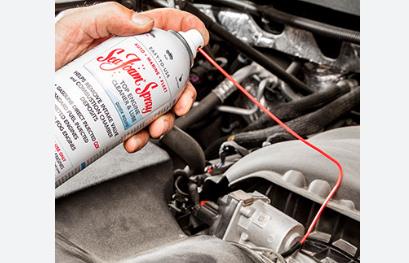
What Is Seafoam?
Your engine was intended to be cleaned with Seafoam. It is designed to clean your engine’s intake valves, carburetor passageways, and other components.
In other words, the carbon deposits that could accumulate inside your engine are expected to boil out and be removed.
It asserts to be secure for both diesel and gasoline engines. We’ve already mentioned that it has certain harmful consequences and allegedly favorable effects. In the section after this, let’s explore that further.
Why Are Some Engines Not Recommended For Seafoam?
According to some reports, some engines should be utilized with something other than Seafoam. Especially those riding in vintage cars with older motors.
This is because specific parts of your car, such as the O2 sensor or the spark plugs, may not be able to handle a substance like Seafoam.
It won’t function with earlier cars that had fuel injection systems built right into the engines. Some have also asserted that Seafoam, in the majority of new or old engines, might do the exact opposite of what it’s supposed to.
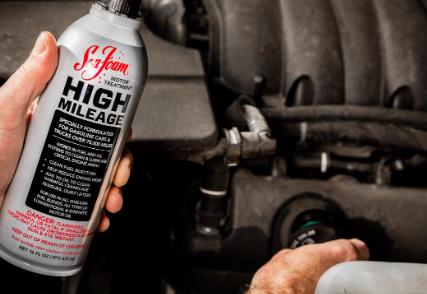
Sludges might not be eliminated but rather accumulated more over time. Additionally, this can put a lot of stress on your engine, especially if it overheats.
What Can Happen If You Put Too Much Seafoam In Your Engine?
As the proverb goes, too much of a good thing may be harmful. The same can be said about Seafoam. What happens if you put too much of it in your engine? Sludge issues, for instance, may affect the oil in your car.
According to some, the oil begins to thin out, making it challenging to maintain the internal engine components and keep the engine running. With this plentiful oil flow, friction between the engine’s parts could be manageable.
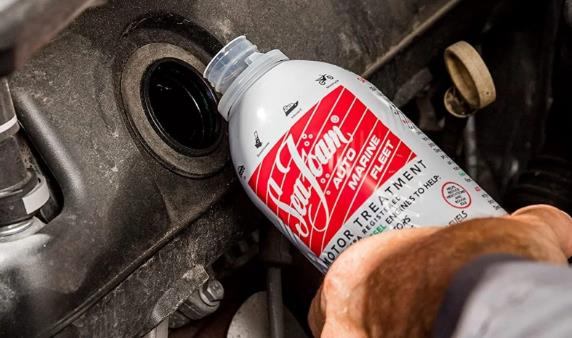
Spraying too much Seafoam may cause your car’s vacuum system to clog. This suggests that additional obstructions might emerge from this.
In addition to sludge, your automobile’s engine could also have a lot of dirt, debris, and other things.
Your car could experience various issues, including an early engine death. The most frequent cause of deadly automobile collisions is an overheated engine. Draining your present oil and replacing it is one remedy for Seafoam issues.
5 Negative Effects Of Seafoam
We’ll examine some of the particular detrimental impacts of Seafoam. This could happen even if you don’t initially use a lot of Seafoam. These are some of the negative effects that Seafoam has had, based on past customer complaints:
It Can Thin Out Your Oil
We’ll start with the first drawback, which is that it can thin down your oil. Oil is necessary to maintain the engine’s lubrication and all the moving parts.
The viscosity and consistency of the oil must match the sort of engine that your car has.
What happens if your oil appears a little thinner than usual? Draining the remaining oil and replacing it with fresh oil would be the wisest action. And you should act upon that right away.
It May Create More Sludge
Surprisingly, the one technique intended to remove sludge will have the opposite result. Yes, it can make even more sludge than it does now. As a result, there will surely be issues with your engine.
Your engine may overheat more frequently than usual if there is more sludge, accumulation, and both.
The last thing you want is for your engine to overheat to the point where it breaks down. Getting rid of the extra sludge could be accomplished with an oil change.
It May Kill The O2 Sensor
Let’s imagine, for example, that your O2 sensor is about to fail. It has been suggested that Seafoam could quicken it. You would be better off having the sensor itself replaced at this time.
What occurs when an O2 sensor malfunctions? It’s possible that your engine feels a touch rough.
Additionally, it might be the worst at identifying problems like overheating, clogging, and so on at the worst possible time.
However, things don’t stop there. Several other issues with a vehicle will result from an O2 sensor failure.
We’re talking about poor fuel economy, decreased pollution levels, etc. Before you know it, the “Check Engine” light can come on, and you’ll be left wondering what’s wrong while waiting in your driveway.
It May Hurt Your Gas Mileage
There is a significant probability that your gas mileage could suffer if you apply Seafoam to your gas tank. You can have further congestion in your car’s fuel line even if you add a bit more petrol than what is considered typical.
Not Suitable For Engines With Some Injector Systems
It would help if you refrained from adding Seafoam to an engine that uses direct injectors. The sludge, filth, and debris will all loosen up.
Even when it works as claimed, a new issue will develop. This will manifest as the injectors become clogged with all that accumulation and other debris. And where will that end?
The potential cost of repairs may be thousands of dollars. Applying Seafoam to clean the engine is the last thing you want to do since this will worsen the situation, especially if the direct-injection diesel engine in your car is powered by diesel.
Does Seafoam Work Or Not?
Using Seafoam could have negative effects. It frequently depends on several factors. If your engines use specialized injection systems, such as direct injection, it won’t function.
It might work with modern engines more successfully than older models. Carbon builds up and sticks to older models more than newer ones.
As a result, it could result in several clogging issues. An older engine might die from this sooner rather than later.
If your engine is old and has a lot of buildup, there may be other ways to clean it than using Seafoam.
Despite your best efforts, if you put it into practice, it can have the opposite result. You might be better off using gas impregnated with detergent in its place.
Furthermore, you cannot use it in a 4-stroke water-cooled engine. Not only is it unnecessary to use, but it could also cause long-term engine harm. Instead, use cleaners based on nitrogen or various substitutes for additives.
Despite its negative effects on most automobiles, most people say it has worked like a charm. Due to the burning of the carbon buildup, their engines now function like new.
Of course, when you start the car and see a lot of smoke from the exhaust, you know it’s functioning.
Conclusion
You can use Seafoam in petrol engine. It is OK to clean a gasoline or diesel fuel system by adding extra Sea Foam. The cleaner the fuel gets, the more Sea Foam you add to it!
Pour Sea Foam into your gasoline tank to clean and lubricate the entire fuel system. It operates through carburetors and fuel injectors to get rid of dangerous residues and deposits from fuel passages, intake valves, pistons, and chamber areas.
Frequently Asked Questions
Can foam be used on petrol?
Foam extinguishers are employed on fires involving burning liquids like gasoline or fuel. Like water extinguishers, they can also be used to put out fires burning solid fuel.
Is Sea Foam safe for all engines?
Most cars with gas and diesel engines can run on Sea Foam. However, if your engine has direct injectors, Sea Foam can result in a blockage. Repairing an obstructed engine can be expensive, particularly for direct-injection diesel engines. Sea Foam is completely safe to use if your engine lacks direct injectors.
Is Sea Foam better in gas or oil?
Seafoam removes residues and deposits and aids in problem prevention or resolution. Sea Foam removes the hazardous residues and deposits obstructing oil flow and engine lubrication in oil. In either case, Sea Foam will aid in maintaining cleanliness to improve engine performance and extend engine life.
Why does foam dissolve in petrol?
Polystyrene (PS) foams are marketed under the name “Styrofoam.” PS rapidly dissolves in various organic compounds, including heavier hydrocarbons and acetone, MEK, THF, benzine, hexane, and hexene. Due to the hydrocarbon composition of gasoline, PS is dissolved, resulting in a viscous paste.

Welcome to the exhilarating world of Matt Rex, a professional car racer turned renowned vehicle enthusiast. Immerse yourself in his captivating blog as he shares heart-pounding adventures, expert reviews, and valuable insights on cars, trucks, jets, and more. Fuel your passion for speed and discover the beauty of vehicles through Matt’s engaging stories and meticulous expertise. Join the ever-growing community of enthusiasts who find inspiration and expert advice in Matt Rex’s blog—a digital hub where the thrill of speed meets the pursuit of knowledge.

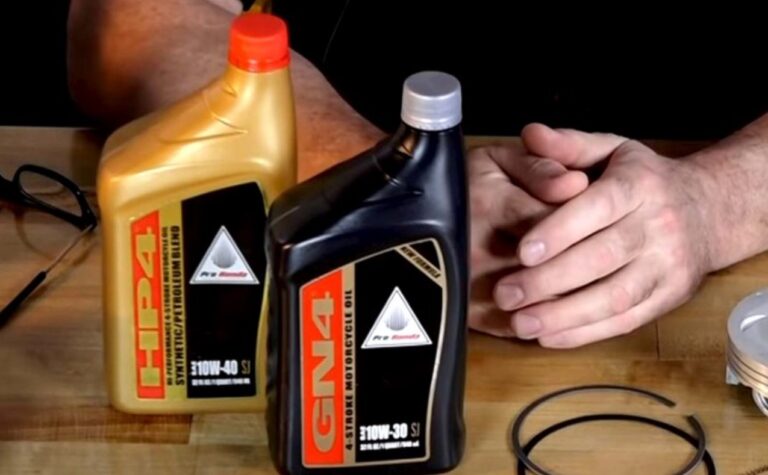

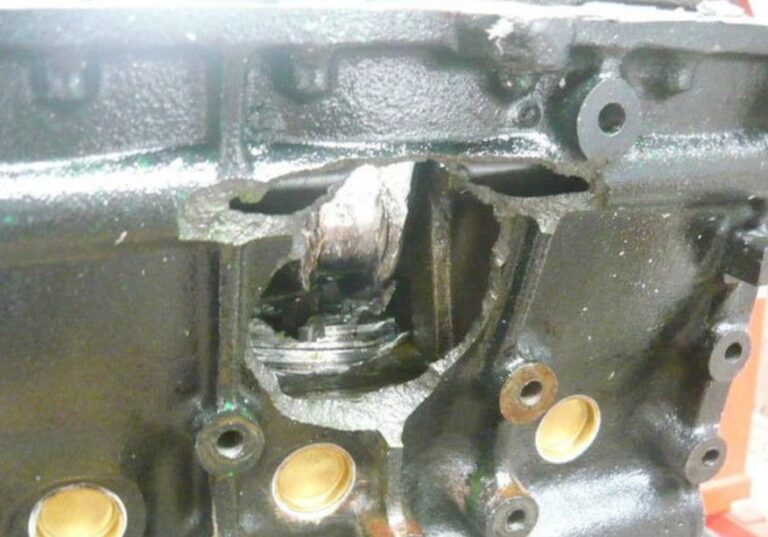


![Car Revving Engine Noise Complaint [Causes + Fix]](https://www.turbochaos.com/wp-content/uploads/2023/11/Car-Revving-Engine-Noise-Complaint-768x623.jpg)